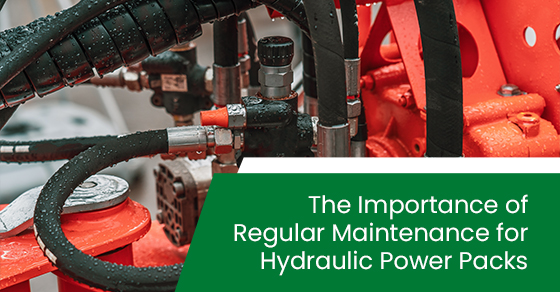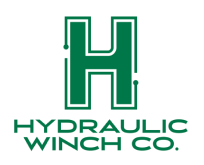
Hydraulic power packs, also referred to as hydraulic power units (HPUs), do the heavy lifting in many industrial, marine, and transportation operations. They run quietly in the background until something goes wrong.
The problem is that failure doesn’t always happen suddenly. Most of the time, no one even notices until the system stops working or slows everything down. Without the right equipment maintenance routine, these issues continue to grow and result in costly consequences.
To prevent this, we examine the real risks of skipping maintenance, the signs to watch for, and how simple upkeep can make a difference in power units’ performance and reliability.
Understanding the Hidden Costs of Neglected Power Units
Neglecting hydraulic power packs can put entire operations at risk. For example, the failure of power units in a marine environment can trap vessels at sea and delay cargo schedules.
In rail systems, a single power unit failure can disrupt switching systems or loading equipment. This can force rescheduling across multiple sites. In agriculture, breakdowns can halt feed systems, fencing operations, or harvest cycles, thereby turning a day’s delay into a significant financial loss.
There are also cable failures. When tension builds unevenly due to poor pressure control, cables snap. Replacements are expensive, and injuries are worse.
Common Failure Signs That Can’t Be Ignored
Most hydraulic power packs give off warning signs before they fail. Here is what to look at for:
- Slower system response: Hydraulic cylinders may hesitate, or winches may lose pulling power. This translates to low pressure or internal wear. Over time, these delays affect timing, coordination, and output.
- Pressure drops: Healthy power units maintain consistent hydraulic pressure. If pressure dips for no clear reason, there may be leaks, valve blockages, or pump wear.
- Unusual noises: Noises, like whining, knocking, or metal-on-metal, could mean cavitation, misalignment, or pump failure. Left alone, they lead to costly repairs or complete motor replacement.
- Discoloured fluid: Hydraulic fluid should be clear and clean. If it turns dark, milky, or smells burnt, it is likely contaminated.
- Overheating: If components or fluid run hot for too long, the system starts to break down. Overheating reduces fluid strength, weakens seals, and increases internal wear.
- Air bubbles in the fluid: Foamy oil indicates air leaks or poor filtration. If not caught early through regular equipment maintenance, this can severely damage the pump and valves.
The sooner these signs are addressed, the longer the hydraulic power packs last.
What Maintenance Really Means for Hydraulic Power Packs
Below are what proper equipment maintenance should include:
- Fluid checks and changes: Routine checks of fluid colour and smell help spot early signs of trouble. Changing it regularly protects every part inside the power units.
- Filter replacements: When a filter clogs, pressure drops, and contaminants slip through. Replacing filters keeps the oil clean and the system running efficiently.
- Hose inspections: Hoses are designed to carry pressurized fluid. If there is a crack, swell, or leak, pressure can be lost. Catching bad hoses early will prevent costly blowouts and keep operations safe.
- Seal and connection checks: A small seal keeps high-pressure systems airtight. One loose-fitting or worn seal can cause slow leaks that weaken the system. Regular inspection ensures hydraulic power packs are working correctly and leak-free.
- Temperature control: Many power units rely on fans or oil coolers to manage heat. If they stop working, the fluid becomes too hot, which is why keeping the cooling system clean and functional is important in preventing wear.
- System testing: Pressure gauges, flow meters, and response checks show how well everything is working. These tests help catch performance dips before they become failures.
Maintenance Demands of Different Industries
It is important to note that not all industries put the same kind of stress on their hydraulic power packs. Each environment creates different challenges, and that means the maintenance approach has to match the job.
Here is exactly how maintenance needs shift across key sectors:
Marine and Offshore
Salt in the air and water causes corrosion. Load demands change constantly with wave conditions. Equipment maintenance in this space should focus on protecting against rust, sealing components tightly, and checking pressure regularly under shifting loads.
Rail and Transport
Long hours and nonstop vibration wear hydraulic systems down, loosen fasteners, and heat fluids. Equipment maintenance should prioritize shock protection, vibration checks, and schedule downtime for deep inspections.
Agriculture and Livestock
Dust, mud, and moisture sneak into everything. Plus, seasonal pauses can cause parts to seize. Maintenance should include pre-season preparation and off-season preservation.
Fibre and Cable Pulling
These power units run hard. Routine checks need to focus on oil health, tension, control, and keeping filters spotless.
Reactive Repairs vs. Proactive Planning: The Maintenance ROI
When hydraulic power packs fail without warning, the downtime alone can cost thousands per hour. Rush parts, labour, missed deadlines, and lost productivity can make the bill climb fast.
Now, compare that to a routine equipment maintenance plan. Scheduled oil changes, filter swaps, and system checks cost far less and can be done during planned downtime.
A $500 repair caught early can prevent a $5,000 rebuild. However, proactive maintenance extends beyond saving money. It keeps the team working, equipment moving, and projects on track.
We Are Tested, Proven, and Hydraulic Strong
At Hydraulic Winch Co., we build reliable solutions for industries that can’t afford downtime. Every system we make is designed with real work in mind, then tested for performance before it leaves our shop.
We manufacture:
- Hydraulic power packs
- Capstan winches
- Bayonet winches
- Marine anchor winch systems
- Complete manhole kits
- A range of ropes for industrial winching applications
Our power units are separate from the winches, as they create the hydraulic pressure needed to run them. Winches use that force to pull, lift, or hold heavy loads.
We offer both stationary and portable power units, with full customization available. This means size, pressure output, hose layout, tank capacity, and more can be designed to fit marine, rail, agriculture, and other heavy-duty industry projects.
Reach out to us today at 888-511-3956 or contact us online to discuss with expert engineers on how to choose the best hydraulic power units that fit the job’s workflow.
